Texas lawmakers signal push to require proof of citizenship from voters
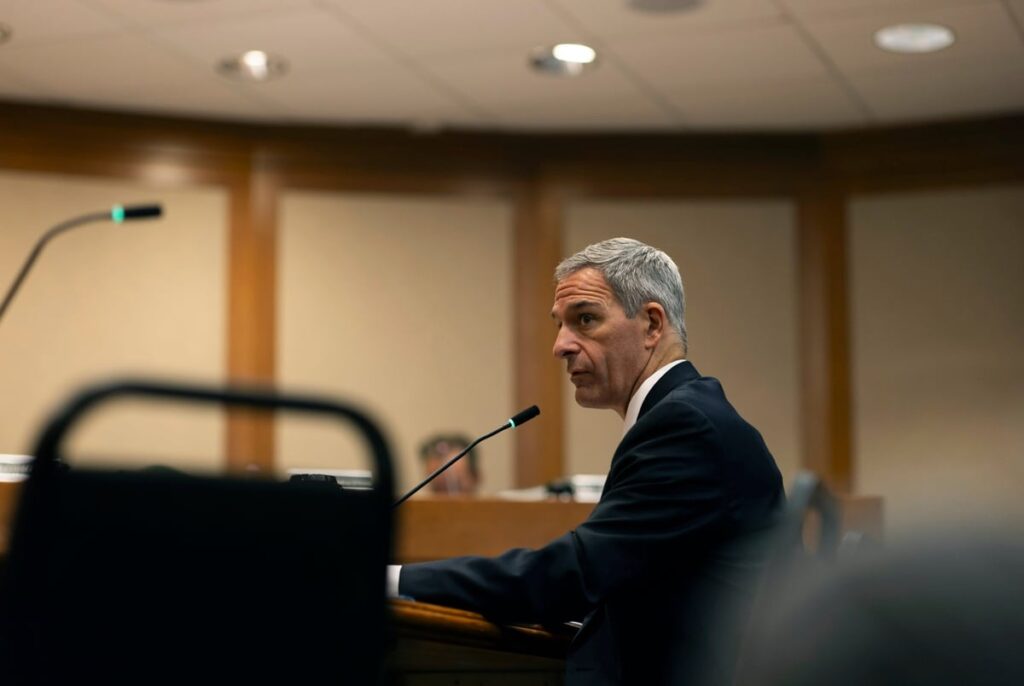
Gov. Greg Abbott gave an inflated number of noncitizens removed from the state’s voter rolls, officials acknowledged, confirming findings by ProPublica, The Texas Tribune, and Votebeat.
Valmiki Jayanti 2024: Are banks closed or open today? Check here

Even with bank closures, customers are unlikely to encounter significant problems, as most banking services are accessible online.
Nayab Saini to take oath as Haryana CM today; PM Modi to attend event
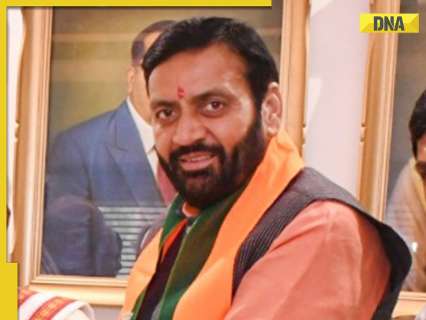
In the October 5 Haryana polls, the BJP secured an unprecedented third term in the state, winning 48 seats in the 90-member assembly.
Ajmer-Jaipur-Delhi travel time to reduce soon, NHAI unveils Rs 200 crore project; details inside

Currently, during peak hours, many commuters encounter substantial delays, often waiting through several signal cycles, with some facing wait times of up to 198 minutes.
‘Illegal, unconstitutional and void’: Georgia judge strikes down new election rules after legal fights
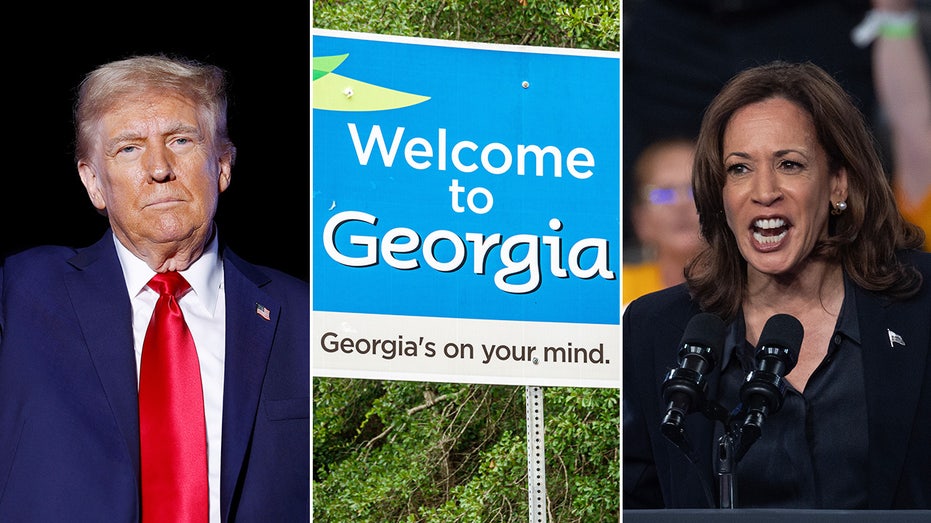
A Georgia judge struck down several rules recently passed by the State Elections Board (SEB) on Wednesday, measures that were a subject of fierce debate between Trump and Harris surrogates in the key battleground. Fulton County Superior Court Judge Thomas A. Cox ruled the new provisions “illegal, unconstitutional and void” in an opinion released Wednesday evening, according to multiple outlets. It comes hours after he weighed two lawsuits on the rules – one led by the Georgia Democratic Party, and a second by civil rights groups which also included current and former GOP state officials. One of the measures – a requirement for all ballots to be hand counted by three county election officials after they had been machine tabulated to ensure the totals match – has become a political lightening rod in recent weeks. GEORGIA GOP CHAIR SHARES 2-PRONGED ELECTION STRATEGY AS TRUMP WORKS TO WIN BACK PEACH STATE That rule was temporarily blocked in a separate ruling made Tuesday night challenging the SEB’s new measures. Fulton County Superior Court Judge Robert McBurney did not take issue with the rule’s intent but argued it would be untenable to implement at this late stage. Cox’s ruling invalidates that measure, while also invalidating a rule directing county officials to conduct a “reasonable inquiry” before certifying election results, and giving them the ability “to examine all election related documentation created during the conduct of elections.” TRUMP VS HARRIS ROUND 2? VOTERS IN KEY GA COUNTY REVEAL IF THEY WANT SECOND DEBATE Cox also blocked new signature and photo ID requirements for people dropping off absentee ballots for others. The rules were passed last month in a 3-2 vote by the Republican majority on the elections board. Democrats had accused the GOP officials of trying to sow doubt and chaos in the elections process, while supporters of the rule changes said they were necessary guardrails to ensure voter confidence. In the wider-ranging of the two cases on Wednesday, led by Eternal Vigilance Action, a group founded by former GOP state legislator Scot Turner, the plaintiffs argued the SEB was out of its scope of authority in levying the new rules. “Three members of the state election board, kind of like Napoleon, they put a crown on their head and say, ‘We are the emperors of election,’” the plaintiffs’ lawyer said. “No, that is not the way our system of government works.” GEORGIA DEMS CHAIR REVEALS MESSAGE TO UNDECIDED GOP VOTERS AS HARRIS WORKS TO BUILD BROAD BASE But the defendants and supporting groups, including attorneys for the Georgia Republican Party, argued the state’s General Assembly gave the SEB the scope to craft such rules. “They don’t say which one of those statutes should be found unconstitutional because, remember, to rule in favor of the plaintiffs here, you’re going to have to find that the General Assembly’s grant of authority to the agency was unconstitutional,” said a lawyer for the GOP. “They don’t say which one of the three powers we have that they violated, could be all three of them, could be one of the three. And if it’s a constitutional challenge, you can’t have something that’s that vague to bring into a court to ask you to declare it to be unconstitutional.” Both former President Donald Trump and Vice President Kamala Harris’ campaigns have dedicated significant time and resources to Georgia, which President Biden won by less than 1% in 2020. Harris’ campaign lauded the Tuesday ruling that blocked the hand-counting ballots rule, declaring, “Our democracy is stronger thanks to this decision.” Fox News Digital reached out to both the Trump and Harris campaigns for comment. The Associated Press contributed to this report.
How does restitution of cultural artefacts affect Western museums’ futures?
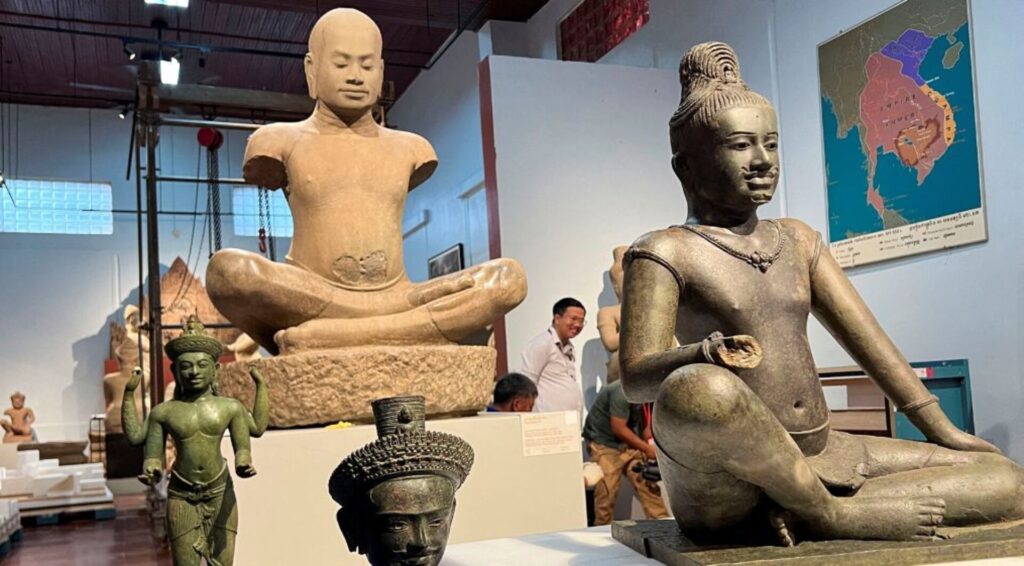
Many African, Latin American and Asian nations are demanding that their former occupiers return historical objects and artworks. It’s given rise to a global debate: Can developing nations, short of funds, preserve the centuries-old artefacts they are reclaiming? Presenter: James Bays Guests: Karen Byera Ijumba – Senior Researcher, Open Restitution Africa Jos Van Beurden – Senior researcher on colonial cultural collections and restitution and founder of Restitution Matters Barnaby Phillips – Author Adblock test (Why?)
Columbia University suspends outspoken pro-Israel professor for harassment
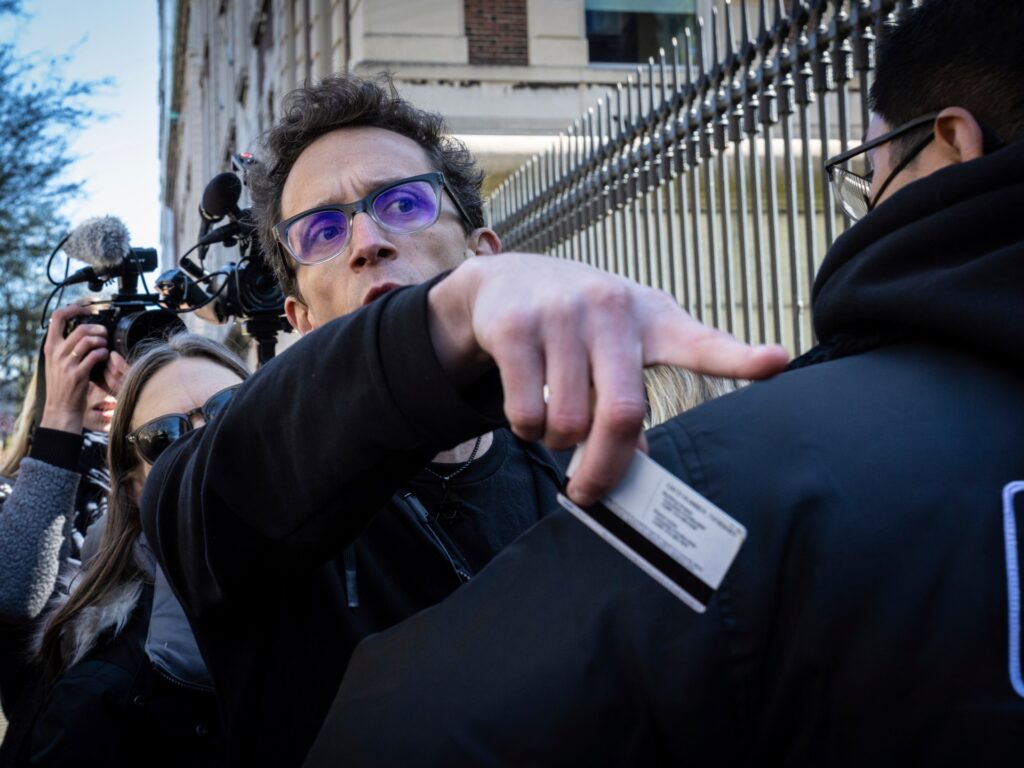
A divisive and outspoken pro-Israel professor at Columbia University in New York City was temporarily suspended after the prestigious school said he “repeatedly harassed and intimidated University employees in violation of University policy”. Shai Davidai, an assistant professor in the business school, has become a fixture on campus and on social media for his aggressive, pro-Israel advocacy and criticism of pro-Palestine students and faculty, whom he regularly accuses of supporting “terrorism”. Davidai announced his temporary suspension on his Instagram account on Tuesday. In an expletive-laden video, he said “the university has decided to not allow me to be on campus anymore. My job. Why? Because of October 7. Because I was not afraid to stand up to the hateful mob”. He said he was suspended in retaliation for posting multiple videos online of his conversations with university public safety officials last October 7, during a protest by the pro-Palestine Columbia University Apartheid Divest student group. He suggested he would sue the university over the suspension and said that he was “not going anywhere”. “I don’t care about my future”, he later wrote on X. “I care about what this acceptance of anti-Jewish, anti-Israeli, and anti-American terrorism means for the students on campus”. https://x.com/ShaiDavidai/status/1846347729355559296 Davidai has recently used his X account, which has more than 100,000 followers, to accuse prominent Columbia professor Rashid Khalidi of being a “spokesperson for Hamas”, and to share the name and email of another professor he suggested was “OK with rape, murder, torture and kidnapping”. Students complaints Davidai has also harassed and doxxed countless students, many of whom have denounced his abuse over the last year. Some of those students took to social media after Davidai’s suspension to criticise the university for belatedly taking action against him. “I have been reporting him nonstop since October 2023 for many things including making video edits of me and only now that he absolutely lost his mind at Columbia administrators did they finally take action against him,” one student wrote on X on Wednesday. “The Columbia business professor who has: targeted me for months, retweeted inappropriate comments about my body, and claimed I was part of Hamas as we evacuated my family from Gaza (we’re Palestinian Christians) is now banned from Columbia’s campus for harassment,” wrote another. She added that Davidai had, among other things, made a video saying the US National Guard should be called in against student protesters and called campus security officers “members of Nazi Germany”. https://x.com/itslaylas/status/1846329303006695454 Despite the many reports accusing him of harassment, it’s Davidai’s intimidation of Cas Holloway, the university’s chief operating officer, that appears to have crossed a line for the university’s administration. ‘Threatening behaviour’ “Columbia has consistently and continually respected Assistant Professor Davidai’s right to free speech and to express his views. His freedom of speech has not been limited and is not being limited now,” university spokesperson Millie Wert wrote in a statement to the Columbia Daily Spectator, the university’s student-run newspaper. “Columbia, however, does not tolerate threats of intimidation, harassment, or other threatening behavior by its employees”. Davidai was restricted from entering campus but the suspension won’t impact his compensation or status as a faculty member, and the university offered him alternative office space off campus. He will be allowed back on campus once he “undertakes appropriate training on our policies governing the behavior of our employees”, the spokesperson added. Davidai was denied access to campus last spring after he announced that he planned to enter the “Gaza Solidarity Encampment”, a protest camp set up by students, and called on his supporters to join him. Last April, Columbia University suspended a student activist after video emerged in which the student said “Zionists don’t deserve to live”. Three university deans also resigned after exchanging texts during a meeting about anti-Semitism on campus that the university said “disturbingly touched on ancient anti-Semitic tropes”. The university suspended another student and former Israeli soldier accused of spraying chemicals on pro-Palestine protesters. At the height of the protests last year, administrators twice called police to break up student demonstrations, leading to dozens of arrests. Columbia University’s protest encampment inspired dozens of others on campuses across the US last year. The university was widely criticised for its suppression of the protests, but also came under intense pressure from donors and legislators accusing it of supporting anti-Semitism on campus, leading to Columbia President Minouche Shafik’s resignation over the summer. Adblock test (Why?)
Texas man faces execution after clemency plea fails
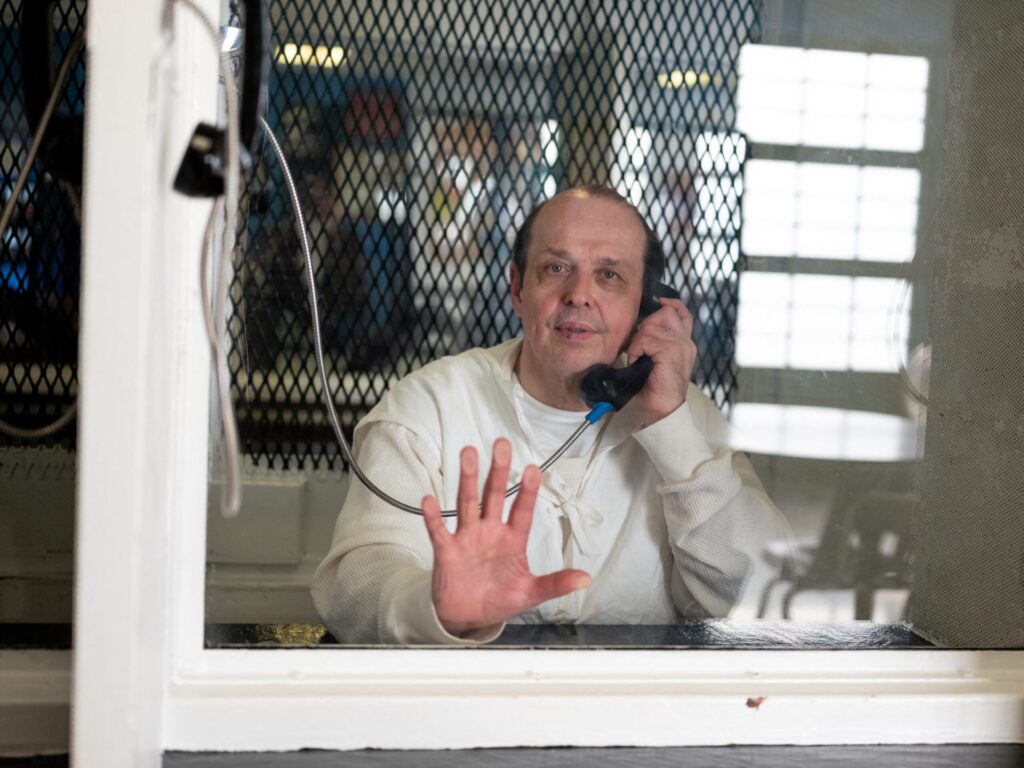
Texas is due to execute a man for murdering his two-year-old daughter, despite doubts about his guilt. Robert Roberson is scheduled to receive a lethal injection on Thursday after Texas’s Board of Pardons and Paroles rejected his plea for clemency. If the execution proceeds, he will be the first person in the United States to face capital punishment for a murder conviction linked to the controversial shaken baby syndrome diagnosis. Roberson has maintained his innocence in the death of his daughter, Nikki Curtis, and the lead detective investigating the case has also come to his defence, urging the state to call off the execution. Texas’s governor, Greg Abbott, could grant a one-time 30-day reprieve for Roberson’s set execution, but he cannot give full clemency without the board of parole’s recommendation. Gretchen Sween, one of Roberson’s lawyers, urged the governor to grant the reprieve “so we can continue to pursue Mr Roberson’s innocence claim”. “We pray that Governor Abbott does everything in his power to prevent the tragic, irreversible mistake of executing an innocent man,” Sween said. In his nearly 10 years as governor, Abbott has halted only one imminent execution. ‘System failed’ Calls have grown to stop Roberson’s execution due to questions about the evidence of his daughter suffering shaken baby syndrome, a brain injury caused by shaking or violent impact. Roberson’s supporters say doctors misdiagnosed Curtis’s injuries as being related to shaken baby syndrome and that new evidence shows the girl died not from abuse but from complications related to severe pneumonia. Roberson’s lawyers also suggest that his autism, which was undiagnosed at the time of his daughter’s death, was used against him as authorities grew suspicious because of his lack of emotion over what had happened to his daughter. One prominent voice that has come to Roberson’s defence is conservative activist Doug Deason, who wrote on Tuesday in a post on X: “I believe he is innocent”. Another advocate is the lead detective in Roberson’s case, Brian Wharton, who has expressed regret for playing a role in his conviction. “Knowing everything that I know now, I am firmly convinced that Robert is an innocent man,” Wharton said at a recent news conference organised by Roberson’s supporters. “The system failed Robert.” The Anderson County District Attorney’s Office, which prosecuted Roberson, has said in court documents that, after a 2022 hearing to consider the new evidence in the case, a judge rejected the theories that pneumonia and other diseases caused Curtis’s death. ‘Rise in the rate of executions’ Roberson is one of several men scheduled to be executed in the next month in the US, where laws on capital punishment are decided by individual states. Derrick Ryan Dearman, convicted of murdering five people in a 2016 home attack in Alabama, will face lethal injection the same day as Roberson. Thomas Eugene Creech, convicted of six murders, including the beating of a fellow inmate to death in 1981, is set to receive a lethal injection on November 13, some nine months after the state botched its first attempt to put him to death, failing to find a viable vein to deliver the lethal drug into. UN human rights spokesperson Seif Magango issued a statement expressing concern about the “rise in the rate of executions” in the US, which put to death six people in a 12-day window last month. One of those executed was Emmanuel Littlejohn, who was killed by lethal injection last month despite a parole board in Oklahoma recommending his life be spared. Another man, Marcellus Williams, whose murder conviction was called into question by a prosecutor, was also executed by lethal injection in September. “We urge the United States to join the growing global consensus towards universal abolition of the death penalty – beginning by promptly imposing a moratorium on executions,” said Magango. Adblock test (Why?)
Ag Commissioner Sid Miller’s former political consultant pleads guilty to bribery
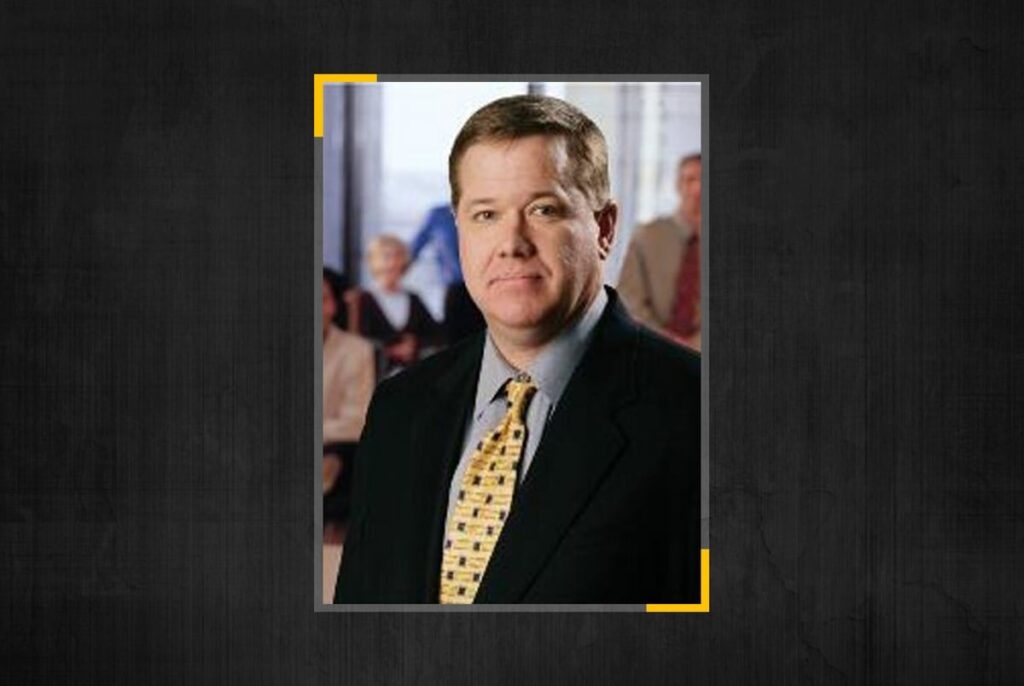
Todd Smith’s plea comes days before he was set to go to trial, where Miller was subpoenaed to testify.
Flurry of pre-election legal cases is now ‘standardized’ strategy, experts say
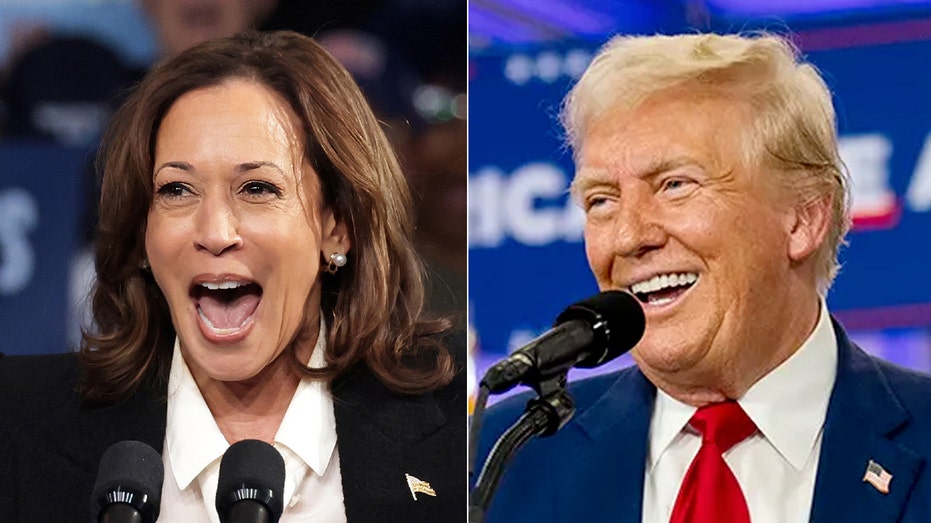
A flurry of U.S. election-related lawsuits are playing out in courts nationwide with more than 160 cases already on the books, and experts say that’s just par for the course during a modern presidential contest. At least 165 election-related lawsuits have already been filed, the majority focusing on issues such as who should be eligible to vote, how ballots are cast and counted, and how to ensure election security and protect against alleged voter fraud. But several legal analysts say they doubt that any of these lawsuits will have a protracted impact on the 2024 election and describe the nature of the claims as fairly standard fare, especially during the more than two decades since George W. Bush fended off Al Gore and a mountain of legal challenges to win the 2020 presidential election. “I think we’re going to have a lot of litigation, but I would be surprised if we have any jugular hints,” George Washington University law professor Jonathan Turley told Fox News Digital. TEXAS CAN PROBE ‘VOTE HARVESTING’ THROUGH ELECTION DAY, APPEALS COURT RULES The most high-profile lawsuits to date have been filed in Arizona, Georgia, Michigan, Nevada, North Carolina, Pennsylvania and Wisconsin, which are the seven battleground states that carry a combined total of 93 electoral votes and which are widely expected to help decide the election in favor of either Democrat Vice President Harris or Republican former President Trump. The close race and wave of recent court cases have led some observers to fear that the lawsuits will either disenfranchise would-be voters, keep one or the other candidate’s supporters from participating in the election, or generate doubts over voting results after the race is decided. But such concerns are likely unfounded, Turley notes. “In the five presidential elections I’ve covered, I don’t think any pre-election challenge had a huge impact,” he said. Turley added that preliminary lawsuits are increasingly used by both parties as a “placeholder” of sorts, both to fuel their own respective narratives about the election and to create a pre-existing record of problems in swing states, which they can then revisit after the election. And it’s not as if this is a new strategy. CHECK OUT THE LATEST FOX NEWS POWER RANKINGS IN THE 2024 ELECTION The U.S. saw a “similar ramping up in 2016 and 2020. I think the closest before then was Bush v. Gore,” Turley said. The standard then was to “ramp up [cases] after the election,” he added. “Now it’s become standardized to line up hundreds of attorneys [beforehand], and we’re seeing the same trajectory.” In the wake of the 2020 election, Trump’s campaign filed 60 lawsuits attempting to challenge the election results in key swing states. And while the number of lawsuits was unusual, experts note that the practice itself is actually quite standard. In fact, the early wave of court filings is actually better for lawyers and judges, given the tight time frame between the elections, state election certifications and Inauguration Day, according to Andrew McCarthy, a former U.S. assistant attorney general for the Southern District of New York. That’s part of the driver behind the early filings in many states, he told Fox News, adding that most of the lawsuits had been filed months earlier and are just now making their way before judges and appellate courts in affected states. From there, judges prefer to deal with them as quickly as possible, he said. “Courts don’t mind getting involved in this area if it’s to be a referee on what the rules ought to be” for an election, McCarthy told Fox News Digital. “But they never want to be in a position of looking like they’re deciding the election.” CLICK HERE TO DOWNLOAD THE FOX NEWS APP In other words, the more they can rule on ahead of the election to avoid the appearance of bias or political sway, the better, he said. “If you’re going to do this right and competently in a way that is representative of the way the legal system is supposed to work, you have to litigate these issues before the election,” McCarthy said. “Because the time frame after the election is just too compressed to do anything in the way of a meaningful election investigation, especially if the issue is fraud.” Get the latest updates from the 2024 campaign trail, exclusive interviews and more at our Fox News Digital election hub.
